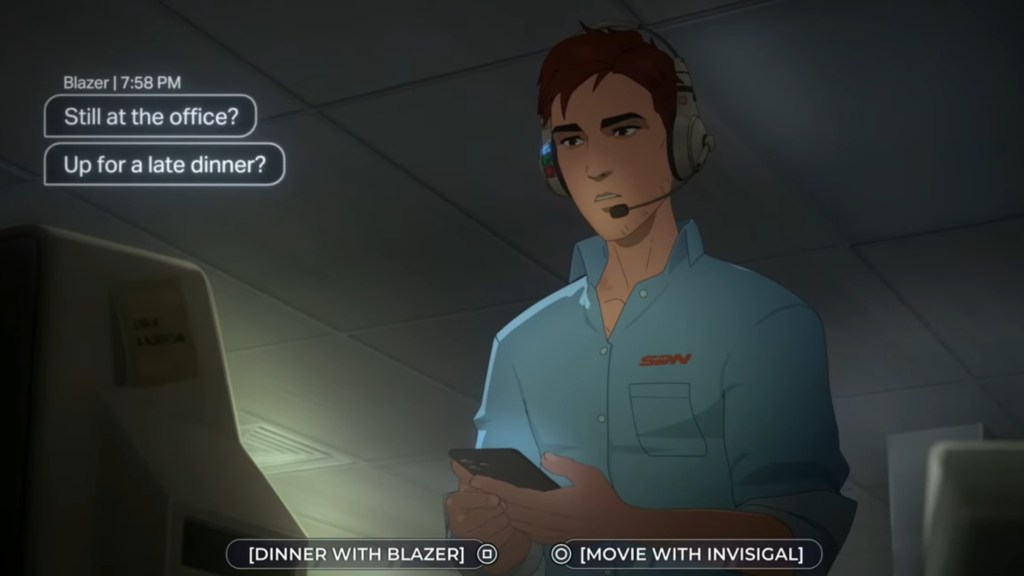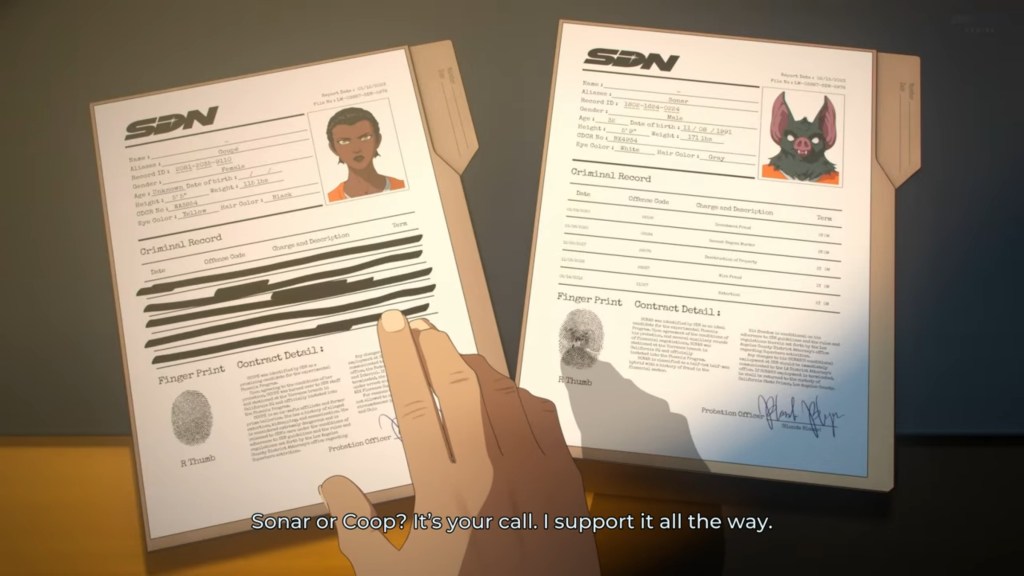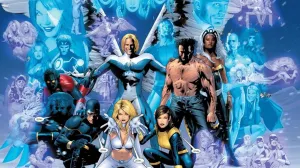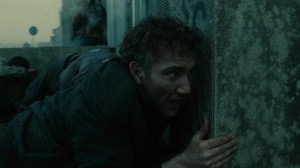The following contains spoilers for Dispatch episodes 3 & 4, now available.
Videos by ComicBook.com
Dispatch is a clever fusion of superhero adventures and office management, but the real focus of the game is on the humanity at the core of the costumed characters. That emphasis is the key to what makes Dispatch such a compelling title. While the team management elements provide the game with some enjoyable gameplay breaks and the overall presentation is impressive, there’s something pure about the game’s approach to superhero storytelling that makes it stand out from other attempts to bring the comic book mainstay into other media.
Stuff like the Marvel Cinematic Universe has had a lot of fun with the visual elements of the genre and leaned into the thematic strengths of characters like Black Panther and Iron Man. However, the films have rarely managed to perfectly capture the interpersonal dramas that make for the best superhero stories. The fact of the matter is, the best superhero titles are often soap operas at heart — and Dispatch understands that on a level that many other takes on the genre just can’t quite match.
Dispatch Is A Love Story, And I Can’t Get Enough Of It

I wasn’t expecting to be so sucked into Dispatch‘s romantic subplot, but it perfectly encapsulates what I think Dispatch gets perfectly about the superhero genre. Episodes 3 and 4 of Dispatch underscore this aspect of its superhero world by highlighting the character dynamics and relationships, especially after Blonde Blazer breaks up with Phenomaman and Invisigal reveals an attraction to Robert. While there’s plenty of comedy to be had and tense moments where heroes have to overcome otherwise impossible odds, there’s also clear work being put into the character relationships and dynamics.
Episode 4 in particular leans into this with one of the player’s toughest decisions yet — checking out a movie with Invisigirl or having dinner with Blonde Blazer. Compared to other potentially life-or-death decisions in the game, this little romantic triangle beat might not seem like much. However, it’s a moment that the first four episodes have all been building to, expanding on the player choices in earlier interactions to make it feel earned.
It’s the first time playing Dispatch that I genuinely had to pause the game to consider my options, weighing my approach to Robert’s burgeoning flirtations with Blazer against Invisigal’s more overt advances. This kind of emotional weight behind even simple decisions is the key to a good superhero soap opera, and is exactly the kind of character work that makes Dispatch such a good example of the genre.
Superheroes Are Best When There Is Emotional Tension

While the original generation of superheroes was often depicted as straight-faced protectors of the innocent, there was always an undercurrent of romantic drama to the adventure stories. Clark Kent and Lois Lane have been a foundational element of the genre since the very beginning, speaking to a sense of romantic tension in the DNA of the genre. However, the true dramatic potential of the superhero genre wasn’t really felt until Marvel Comics introduced teams like the Fantastic Four and heroes like Spider-Man. More than their amazing abilities or flashy costumes, what made those characters stand out was their interpersonal dynamics.
Spider-Man may be the title character, but it was Peter Parker’s home life and romantic entanglements that really drew in fans. Marvel really leaned into this when the X-Men were reimagined as an international team, with much of the drama now not only stemming from external threats but internal strife between characters. Love triangles, secret pasts, and ulterior motives are storytelling elements that make the superheroes feel painfully human in ways that make them hard to stop thinking about.
Modern riffs of the genre, like Invincible and The Boys, have balanced this aspect with their own darker interpretations of the genre, ensuring that the audience remained engrossed in the emotions of the story. This is the secret ingredient of Dispatch, which has a strong undercurrent of character depth and character relationships at the core of the story. Players aren’t just tasked with balancing character power sheets; they’re also forced to reckon with the emotions of the characters and how their own decisions will impact one another. It places the player directly into the soap opera, and that’s a terrific choice by the developers.
Your Choices Matter More When You Care About The Characters

Throughout Dispatch‘s first four episodes, there’s been a gradual focus on characters that can come out in obvious ways or with subtle touches. It’s been impactful on gameplay and storytelling alike, a great synergy of storytelling and gameplay. Take the choice at the end of episode 3, which forces the player to cut either Sonar or Coupé from the team. In a lesser game, the decision would solely come down to personal preference and character strengths.
However, by the time the decision is on the table, players have gotten to know both characters. They may have found success with Sonar’s ability to bond with corporate clients, or been charmed by Coupé’s friendship with Punch Up. Both characters have bickered with others and thrown out their opinion on Robert, but both also come across as genuinely heartbroken if they’re the ones cut from the team. It lends the choice a sense of emotional depth that makes the decision all the harder.
In Dispatch, the player is made to feel like they’re genuinely a part of the story, not just the action. There’s a focus on character and emotion that makes the heroes more than just archetypes, with a sense of comedy and tragedy brewing just under the surface that helps them feel real. The strength of the game design comes into play when the decisions begin to impact other hero assignments, such as when other heroes, angered over Robert’s decision in episode 3, can choose to ignore his requests for assistance in episode 4.
It makes every seemingly minor decision in Dispatch all the more impactful, highlighting how the game genuinely lives up to the idea that every choice matters. The way it does this is by pulling from the soap opera elements that have always been at the core of the best superhero stories in comics, and highlights what many entries in the MCU or DCEU were lacking. The human element that comes from bickering with each other before coming together for the greater good is what makes superheroes so compelling on an emotional level, and Dispatch absolutely nails that part of the genre.








